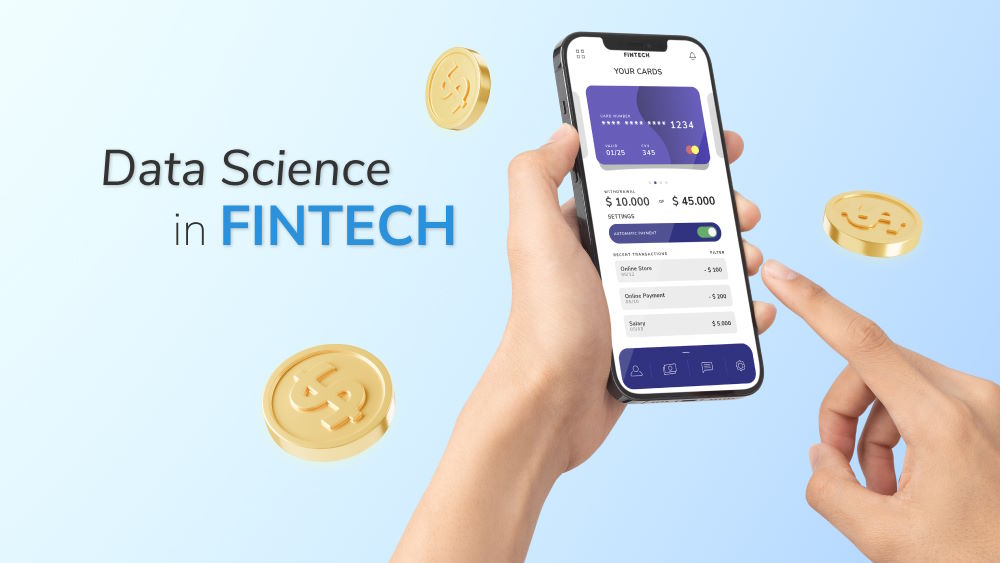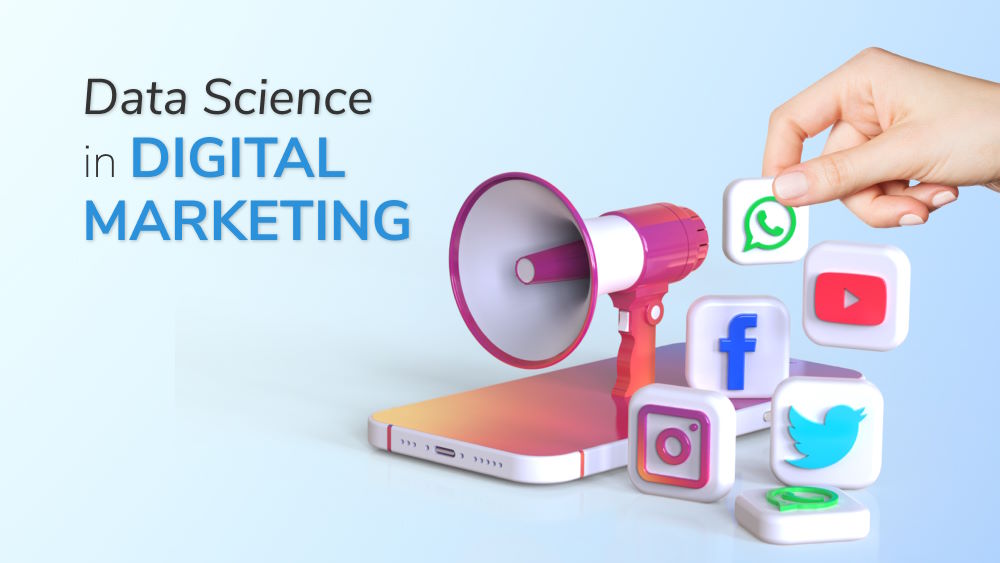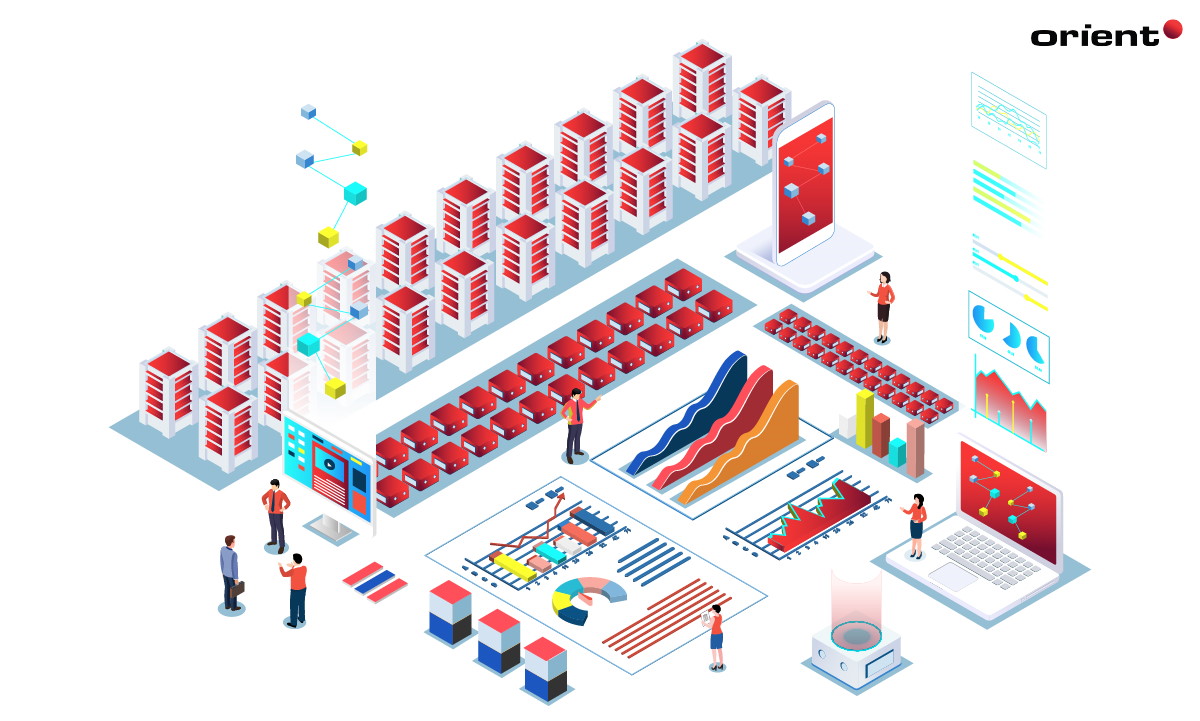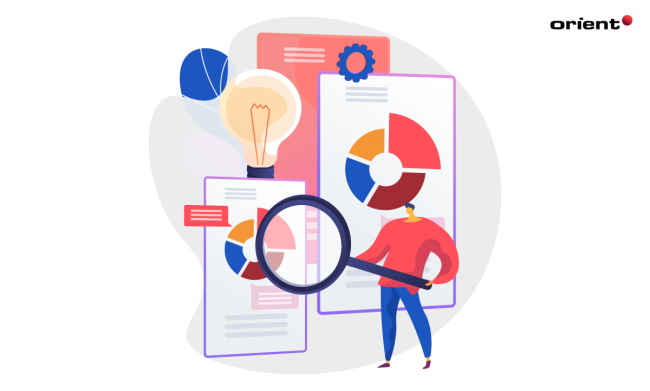Seven Applications of Data Science in Healthcare You Need to Know
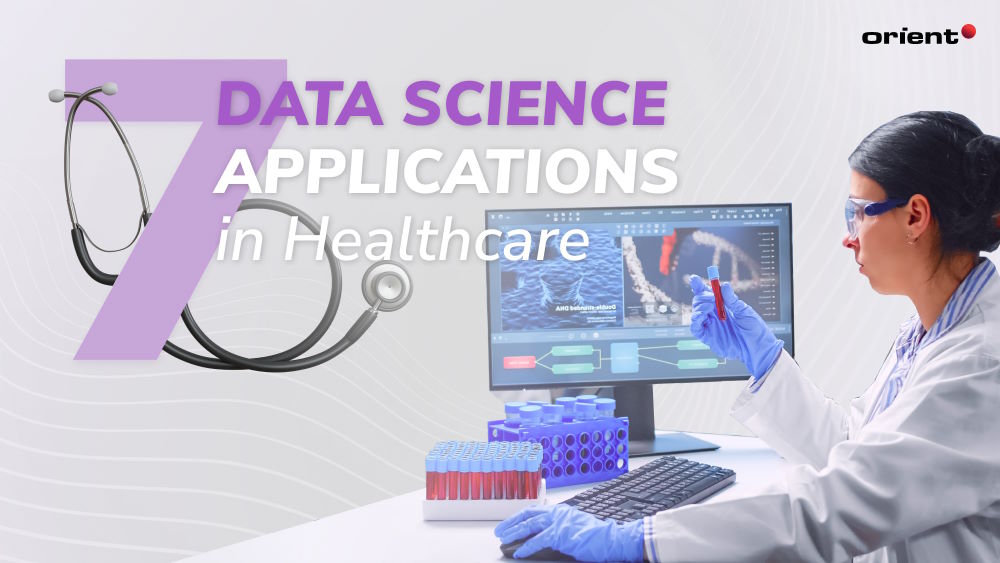
Content Map
More chaptersThe era of innovation is at its height right now. Rapid technological advancements have pushed every industry to seek to utilize technological solutions to get insightful information and make well-informed judgments. One such industry is healthcare, where advanced medical devices and access to medical data play a crucial role. Sometimes, one fast response is the only difference between life and death.
Therefore, this article would like to dig deeper into the applications of data science in healthcare. Why do medical professionals benefit greatly from data science? What are the applications of data analytics in the medical field?
What Is Data Science in Healthcare?
A report by McKinsey has stated that by 2025, technology-driven innovation in the healthcare industry has the potential to generate $350 billion to 410 billion in annual value, enabling more convenient, individualized care delivery and increasing patient understanding.
By the third quarter of 2022, there will be over 45,000 medical mobile apps available on the Apple App Store and more than 54,000 healthcare and medical apps on the Google Plays Store.
These numbers suggest the use of data science to better understand the collected data is very present and essential.
So, what is data science in healthcare?
Data science combines math and statistics, specialized programming, sophisticated analytics, artificial intelligence (AI), machine learning, and specialist subject matter expertise with domain expertise, which in this case is healthcare expertise, to reveal useful insights hidden in an organization’s data. Strategic planning and decision-making are also impacted by this.
As the value of healthcare data increases, so does the demand for a healthcare data scientist. They play a vital role in understanding and interpreting the data, which, most of the time, are unstructured or semi-structured.
If you would like a deeper understanding of data science in general, check out our guide to data science.
Why Data Science in the Healthcare Industry?
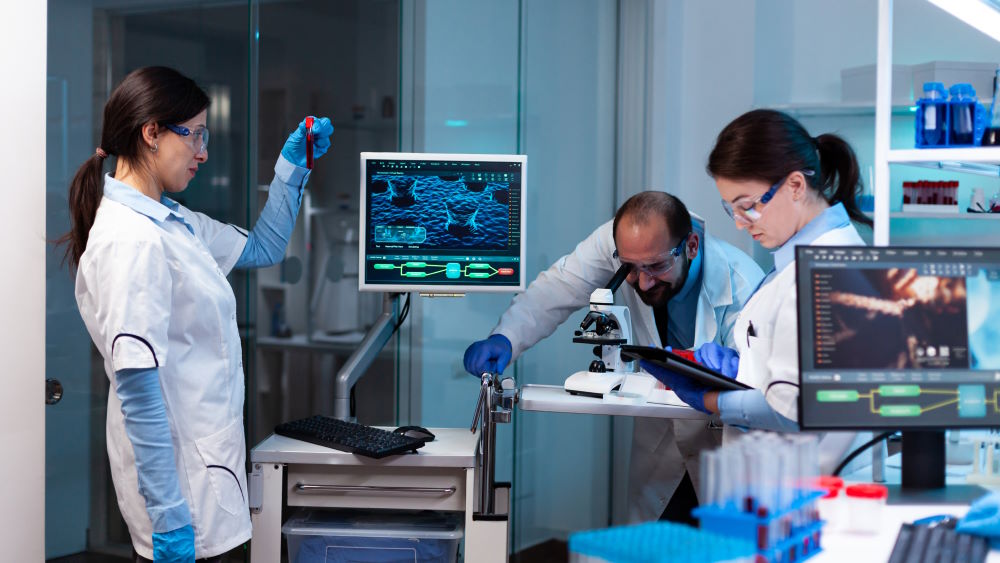
Data science plays a major role in the healthcare sector for several reasons.
The Detection of Early Symptoms
The factual data collected and proper analytics allow healthcare practitioners to make more accurate predictions and prescriptions, reducing the rate of treatment failure.
Real-time Data to Support Treatment
More widespread disorders, such as heart or respiratory ailments, can be detected and monitored using machine learning algorithms. Even the smallest changes in a patient’s health markers can be identified. By collecting and analyzing data on heart rate and breathing patterns, potential diseases are predicted, which can be beneficial for clinical trials.
Facilitates Drug Development
With access to big data, lab practitioners are given adequate resources to develop and test drugs - overall known as the drug discovery process. The time spent on developing is also reduced significantly.
Application of Data Science in Healthcare and the Use Cases

The potential of data science in healthcare is limitless: Efficient analytics and interpretation of the data patterns help improve the overall quality of medical care, early disease detection, life expectancy, and the identification of essential treatments. Patient care can then be more personalized.
Therefore, the use of data science in healthcare is widespread. Following are 7 data science applications in the healthcare sector.
Medical Imaging
Medical imaging is usually referred to as radiography - the branch of medicine wherein doctors make different images of bodily components for diagnostic or therapeutic purposes.
Non-invasive tests utilized in medical imaging techniques enable clinicians to make non-intrusive diagnoses of illnesses and injuries.
Doctors often rely on scans like magnetic resonance images (MRIs), X-rays, and computerized tomography (CAT) to make diagnoses. These images provide valuable insight to medical practitioners about their patient’s conditions and/or diseases. Medical image analysis can be utilized to detect lung tumors, spinal deformities, and the list goes on.
These insights, however, can be further enhanced with the help of data scientists. For example, the integration of medical image analysis with the use of artificial intelligence improves screening, diagnosis, and prognosis. The growing number of medical facilities and patients has also improved the clinical settings for computer-based healthcare diagnostic and decision-making systems.
Pharmaceutical Development
There is still a huge number of incurable diseases, namely cancer, AIDS, Alzheimer, etc. Detailed healthcare data analysis provides scientists with a better understanding of how certain chemical components may affect the human body. Simulations or tests can be conducted on a larger scale without the worry of human errors.
For example, an associate professor University of Arizona College of Medicine, Tucson, and his collaborators from Harvard University have been harnessing the power of AI to further understand the cause behind Alzheimer’s while also trying what effects the drugs have on the patient.
This, of course, is not the only attempt to leverage data science and machine learning technology in the healthcare industry. Therefore, healthcare data scientists are slowly but surely transforming pharmaceutical development.
Predictive Modeling and Analytics
In the field of healthcare, predictive analytics refers to the practice of examining historical healthcare data to find patterns and trends that could be indicative of future occurrences. The possibility of specific medical clinical choices, disorders, patterns, and even the spread of illnesses can all be forecasted using predictive analytics.
Data generation in the healthcare industry is massive. This fact, along with inefficient data management, often leads to valuable data being ignored and not analyzed. Data science is trying to make the best use of such healthcare data.
Healthcare providers can benefit from using predictive modeling to respond as promptly as possible to changes in a patient’s vital signs and to anticipate the onset of symptoms before they become overtly evident.
Another example is by anticipating which patients would require readmission following a hospital stay; physicians can modify their post-hospitalization treatment plans. As a result, readmission costs are lowered, healthcare resources for new patients are protected, and patient outcomes are enhanced.
Patient Health Record Maintenance
The amount of human body data is huge - some resources believe it goes up to 2 terabytes per day. The management, therefore, can be extremely challenging, particularly when it comes to chronic conditions like diabetes.
With the help of medical wearables, the tracing and tracking of any health indicators - heart rate, sleep patterns, blood glucose, stress levels, and even brain activity can be recorded and managed more efficiently.
Effective scheduling and patient care delivery during a patient’s hospital stay is also part of patient data management. The voluminous amount of data paired with the development of technology has allowed such data to be stored electronically. Electronic health records, or EHR, are essentially digital versions of a patient’s paper chart and are widely used in clinics. Again, with the help of machine learning algorithms, the data can be pooled together to study and produce valuable insights.
Virtual Assistance
A medical virtual assistant is a specialized virtual assistant who offers medical support services to any medical office or medical professionals, such as documenting patient contacts, managing patient medical records, organizing appointments, and so on.
Consumers can gain insight into their health by inputting individual health data and receiving diagnoses. These platforms also provide users with access to health insurance and lifestyle advice, the ability to keep track of certain patient data, medication reminders of upcoming appointments, or notifications when results are available.
For health care provider’s side, virtual assistance allows them to keep track of a patient’s visit, gather data, or plan treatment.
Some examples include AI-generated chatbots like Buoy Health (which offers personalized healthcare advice based on symptoms and searches for healthcare professionals nearby). Sensely it uses the patient’s symptoms and medical background to offer tailored counsel.
Medical Data Privacy and Detecting Fraud
Cybersecurity has become a growing concern. Hackers look for every and any opportunity to gain access to the information.
Having to handle an enormous amount of data every day, healthcare organizations must take steps to protect data privacy. Data privacy must be maintained while not losing its usefulness. Data scientists must build frameworks and systems to keep sensitive data, namely insurance and billing information, safe. The ability to detect fraud as soon as possible is also essential. The system entails being updated regularly to prevent any unwanted, expensive data breaches.
It is best to have experts help out in such matters. Not only can healthcare scientists focus on their main task, which is data analytics, but they can also rest assured that the data is well protected. Make sure to look for credible partners with testimonials from previous customers. Orient Software team is one such team if you need help with cybersecurity and so much more.
Patient Engagement
The health-care industry can use data science to get patients involved and help them stick to their treatment plans. These apps encourage patients to actively track their health indicators, appointments, meds, treatments, and lab results. It is also easier for people to get in touch with their healthcare providers to ask questions or book an appointment.
These platforms are also educative as they offer fun, interactive ways to learn more about medical conditions or other generic medical knowledge. Almost gamifying the learning process and letting users engage and interact with the apps at their own pace, healthcare information wouldn’t have to feel as scary for them anymore. This is particularly useful for young kids.
Future of Data Science in Healthcare

Data science in healthcare has a bright future ahead. Despite certain weaknesses like concerns regarding data privacy and fraud, the overwhelming application of data science has proven what a major player it has become. It would have been painstaking for the practitioners to manually manage the ocean of patient information to track diseases and predict treatment outcomes while simultaneously figuring out the cure for cancer.
Therefore, data science has proven to be a future key player in the industry’s steady innovation.

